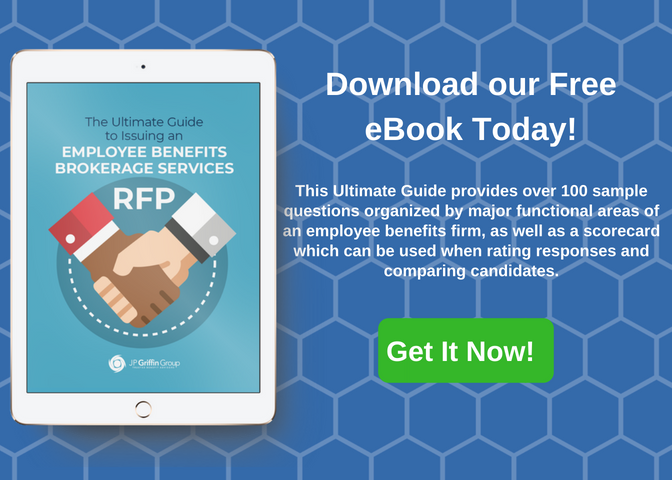
Crafting an employee benefits program for your workforce can be a daunting task, not to mention a great deal of work that often falls outside an employer’s area of expertise. After all, we don’t meet many small to midsize business owners who cherish having to become experts in human resources and employee benefits.
This is precisely why most companies (even and especially large ones), lean on outside resources and subject matter experts for assistance with their employee benefits program.
While some very small businesses bundle the procurement of benefits with their payroll provider or property/casualty broker (a practice we’d strongly recommend against - and a topic for a future blog post) most businesses elicit the assistance of a professionally licensed and trained employee benefits expert.
There’s only one problem: most HR professionals are confused as to whether they need an employee benefits broker, an employee benefits consultant, or an employee benefits advisor. Many are also unclear of the difference between these professionals - and many wrongly assume it’s just merely semantics.
Since a consultant and advisor are essentially two terms for the same thing, we will use the term advisor (rather than consultant) for the rest of this article. That said, employee benefits advisors and employee benefits brokers ARE very different, primarily in the scope of services they offer to employers. These differences are important to understand since these professionals help you manage one of your largest operational expenses.
The Difference Between Employee Benefits Brokers and Advisors
Looking back historically, an employee benefits broker typically worked on commissions while an employee benefits advisor worked for a fee. While the way an employee benefits specialist gets compensated is unimportant to some employers, for others it matters how they get paid.
Regardless, this type of compensation alignment according to role/title is now somewhat antiquated, as many brokers now work based on fees while many consultants work on commissions.
The far more important distinction between brokers and advisors comes down to a transactional vs. consultative relationship. Employee benefit brokers are primarily focused on helping employers procure benefit products and coverages. They may offer a few additional services, such as assistance with open enrollment, but the scope of services they provide is rather narrow and almost always insufficient for companies with small if not downright nonexistent HR departments.
On the other hand, an employee benefits advisor not only handles procurement and enrollment, but is also deeply involved with how a company’s collective benefits package will help drive the organization's overall human capital strategy and other strategic imperatives.
These strategic imperatives might include in depth competitive benchmarking to assess the role of benefits in employment recruitment and retention. It might also include education and recommendations regarding funding mechanisms when weighed against an organization's appetite for risk and reward. And it most definitely will include short and long term financial modeling, forecasting and large claims management.
Beyond strategy and more sophisticated cost containment techniques, an employee benefits advisor will also assist with a host of burdensome administrative tasks, including enrollment, on-boarding, off-boarding, automation, and billing reconciliation. Depending on the advisor, they may also assist with employee engagement, in terms of marketing communication, wellness, and a customer service hotline for your employees and covered spouses and dependents.
At The JP Griffin Group, we measure our success by our ability to ease our clients' HR administrative and financial burdens, while at the same time delivering truly competitive employee benefits packages. Learn more about the benefits of our Philosophy for your business.
Taken as a whole, the robust and more sophisticated services of an employee benefits advisor are usually an excellent fit with not only small and midsize companies, but with larger employers as well, most especially those with cross-departmental interests in the benefits program, such as Finance and Corporate Communications.
How To Choose Between An Employee Benefits Advisor and Broker
Somewhat surprisingly, you’ll find that commissions and/or fees for an advisor vs. broker aren’t all that different. Nevertheless, it’s critically important to ask each of them what’s included in their standard fees and/or commissions.
Some will put forth a figure which covers virtually every service you’ll require, while some may price things more a la cart. Just be careful not to hire an advisor or broker who ‘low balls’ you to win your business, only to ‘nickel and dime’ you at every turn.
Get a defined “scope of services” document from them before picking the right professional to help you with your benefits program. Ask them to delineate which services are included and which will cost extra. If possible, have them provide a firm quote for their additional services before you hire them. That way you’ll know what everything costs before you partner together.
All that being said, fees/commissions should not be the sole determinant in hiring an employee benefits specialist. In fact far from it. Both an employee benefits broker, and even more so, an advisor, should be able to drive down your overall costs (or slow your increases) through better leverage, negotiation, and other tried and true cost containment techniques. Their skills in this area should be taken into account when trying to determine who best to hire. After all, you shouldn’t be looking for the lowest cost provider, but rather the best provider for the best overall impact in your organization.
As the Society for Human Resources Management suggests, “Our recommendation is to ignore title and instead focus on three things; what do they do, how do they do it, and how they get paid.” We’ll add two more to this list; “how well do they do it” and “how will they impact my organization.”
Assessing employee benefits packages takes enough of your valuable time, never mind ensuring your business is compliant with regulations that pertain to you if you’re 50+ employees. For this reason, partnering with an employee benefits advisor/consultant can really save you time and worry. Request a complimentary benefits review to learn more about how JP Griffin Group can help.

















